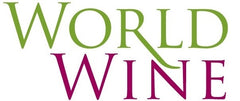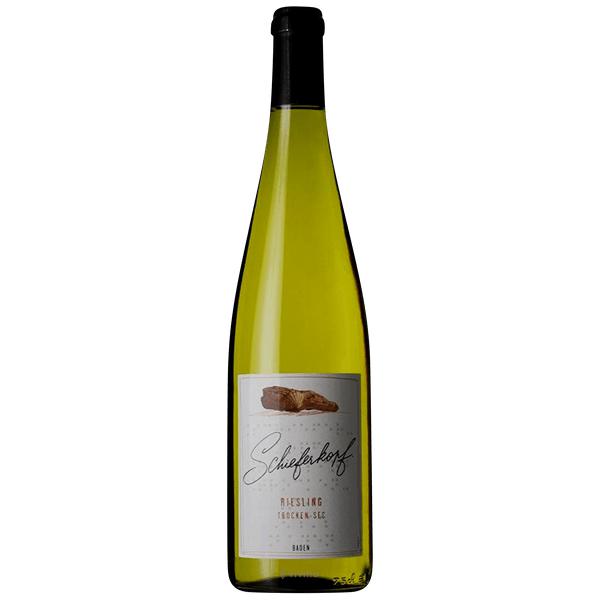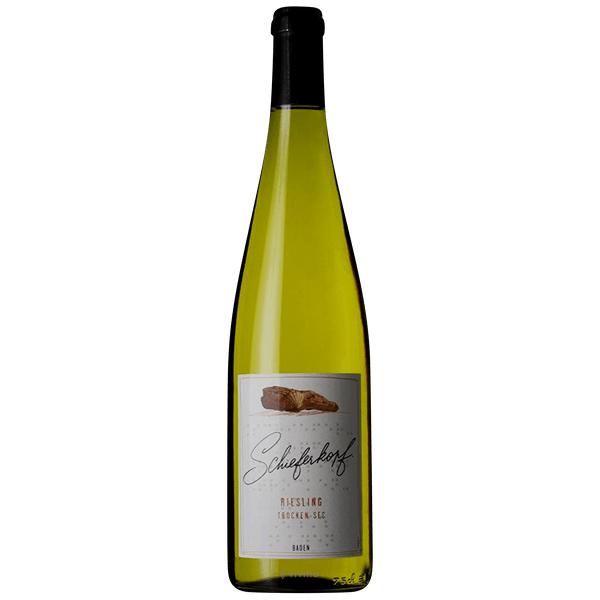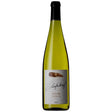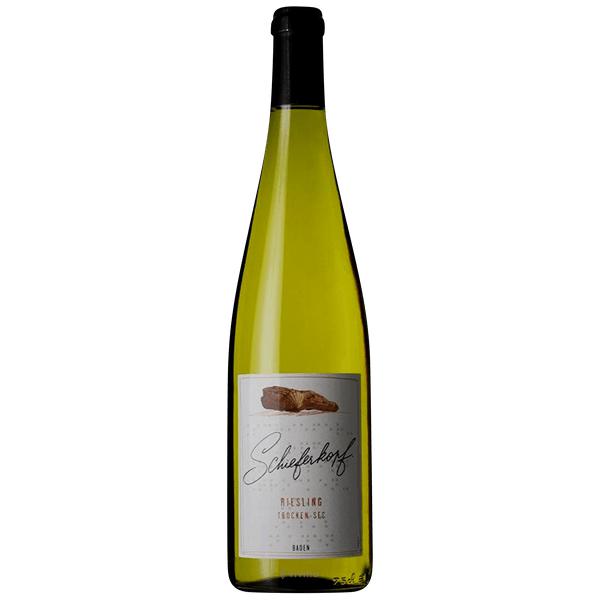Our location
We are located in the heart of Melbourne and stock a range of specialty wines.
We also have access to more than 5000 fine wines from around the world through our local supplier network. Sometimes a vintage changes, or our suppliers sell out of stock without us yet being able to push through a timely update on our website.
If you would like to confirm stock levels before placing your order, please contact us here. Alternatively, if products are unavailable you will be informed in a reasonable time and we will process a refund/replacement for you.
Schieferkopf Baden, Riesling (Trocken-Sec-Dry) 2023
A 5% discount has already been
applied to this option.
Schieferkopf Baden, Riesling (Trocken-Sec-Dry) 2023 - 12 Bottle Case is backordered and will ship as soon as it is back in stock.
Free Delivery Orders over $250*
Or $9.95 flat fee Australia wide.
Dispatched from our Melbourne store.
Couldn't load pickup availability
Vintage Vigilant
Vintage Vigilant
We aim to have all wines above $30 be vintage specific. In the case the listed vintage is out of stock and you note you would like that particular vintage, we will inform you via email for approval to go ahead.
Seen it Cheaper?
Seen it Cheaper?
We strive to offer the best prices on over 5000 wines. If you've seen this product cheaper elsewhere, please message our dedicated price match service line to see if we can do you a better deal.
Delivery Times
Delivery Times
To be able to supply such a unique & extensive range of boutique wines, we don't hold much of the inventory. So with us, there is the added step of receiving the wine from our local suppliers before it is dispatched to you. Most orders are dispatched within 3-6 working days.
Returns and Warranty
Returns and Warranty
Replacement or refund offered if bottles are faulty or damaged. All our deliveries are insured against loss, however you must notify us in a reasonable amount of time.
-
 Red Wine
Red Wine
-
 White Wine
White Wine
-
 Rosé Wine
Rosé Wine
-
 Champagne & Sparkling
Champagne & Sparkling
-
 Dessert, Sherry & Port
Dessert, Sherry & Port
 France
France Italy
Italy Spain
Spain Australia
Australia New-Zealand
New-Zealand Germany
Germany Austria
Austria Portugal
Portugal South-Africa
South-Africa Greece
Greece USA
USA
-
 Wine GiftA great wine gift.
Wine GiftA great wine gift. -
 Green WineA wine made using sustainable, organic and/or biodynamic practices in
the vineyard and the winery.
Green WineA wine made using sustainable, organic and/or biodynamic practices in
the vineyard and the winery. -
 CollectibleA wine that will improve and possibly increase in value with
careful cellaring.
CollectibleA wine that will improve and possibly increase in value with
careful cellaring. -
 BoutiqueA wine from a small, artisanal winery.
BoutiqueA wine from a small, artisanal winery. -
 Screw CapNo corkscrew required to open.
Screw CapNo corkscrew required to open. -
 Magnum1500ml bottle.
Magnum1500ml bottle.
- TWFThe Wine Front
- JHJames Halliday
- WWWorld Wine
- WSWine Spectator
- WEWine Enthusiast
- BHAllen Meadows
- JSJames Suckling
- DEDecanter
- JRJancis Robinson
- STStephen Tanzer
- AGAntonio Galloni/Vinous
- RPRobert Parker/Wine Advocate
- HHHuon Hooke
Maison Chapoutier has grown into one of the largest and most recognisable producers of Rhone wines. The company dates back to 1808 when Michel Chapoutier’s distant ancestor Polydor Chapoutier bought a parcel of vines in the Rhone Valley. Michel is committed to making the best wines whilst respecting the environment. Chapoutier now owns the largest biodynamic vineyard in Europe. It is his personal conviction that “the complexity in a wine comes from the level of microbiological activity around the vine roots”.
Chapoutier’s Schieferkopf project includes wines made in Germany and wine made in Alsace, France. On the French side, the Domaine, which uses organic farming, is located on the only vineyard on blue Alsace shale. In Germany, three vineyards enjoy exceptional terroirs with granite soils. Common to both is the maximum sunshine exposure and a mosaic of complex soils which brings subtlety to the grapes. Organic and biodynamic principles are used in order to allow the terroirs to shine through these unique wines. A number of Sélection Parcellaire (single vineyard selection) wines demonstrate why Riesling is the noblest of grapes.
The grapes for Schieferkopf Riesling Trocken Sec sourced from vineyards planted on granitic and arkose sandy surface with Granitic subsoil. The grapes are harvested and also sorted by hand. The grapes undergo a direct pressing without destemming (pneumatic press) followed by a cold static settling. Fermentation takes place in temperature controlled stainless steel vats (16-20°C). Finally the wine is aged in stainless steel vats on the fine lees for 12 months.
As with all Chapoutier’s wines, the label also features a description in Braille.
| Type | White Wine |
|---|---|
| Varietal(s) | Riesling |
| Country | Germany |
| Region | Baden |
| Brand | Schieferkopf |
| Vintage | 2023 |
About German Wines

Germany is the world’s northernmost fine wine producing region and thus requires its vines to endure some of the coldest temperatures. Fortunately, the country’s star variety, Riesling, does well in cooler climates and can survive even these freezing winters.
Germany Riesling is classified by ripeness at harvest which is also used to indicate the wine’s level of residual sugar. Picking earlier means the grapes have less time to ripen and the corresponding wines will be on the drier side; while picking later gives the grapes the opportunity full ripen and produce a lusciously sweet Riesling. The classifications from driest to sweetest: Kabinett, Spätlese, Auslese, Beerenauslese, Trockenbeerenauslese and Eiswein (ice wine). While not as common to age white wines outside of Chardonnay, top tier German Rieslings can be aged for decades.
Other notable white grape varieties produced in Germany include Müller-Thurgau (a cross between Riesling and Madelaine Royale in the search for varieties that could withstand the extreme temperatures), Grauburguner (Pinot Gris) and Weissburguner (Pinot Blanc). The cooler German climate leads to earlier harvesting in general and gives German wines a distinctive character of higher acidity.
Historically red wine has always been harder to produce in the German climate. However, Pinot Noir grown in slightly warmer pockets of the country, has been highly successful in recent times. Going by the German name, Spätburgunder, German Pinot Noir can be elegant, structured and have vibrant acidity.
